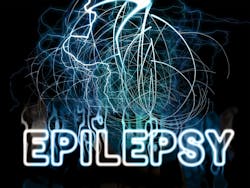Damage to a part of the brain that regulates hyperactivity can contribute to both memory problems and seizures in the most common form of epilepsy, according to research at the University of Wisconsin–Madison, which was summarized in a news release.
The study, published recently in the Journal of Neuroscience, may lead to earlier diagnosis of epilepsy and possibly new ways to treat epilepsy and other disorders that share symptoms, like Alzheimer’s disease, traumatic brain injury and autism spectrum disorder.
Temporal lobe epilepsy, marked by seizures in the brain’s centers for learning and memory, affects more than half of the 3.4 million people in the U.S. diagnosed with epilepsy. One part of the temporal lobe, called the dentate gyrus, has long been suspected to work as a gate — helping to manage brain activity by getting choosy about which patterns of brain cells are active and which are silenced.
“You can think of each pattern as representing one memory,” says Antoine Madar, now Postdoctoral Researcher at the University of Chicago, who conducted the research while earning his doctorate at UW–Madison in the lab of Neuroscience Professor Matt Jones. “One pattern represents the first time you visited an art museum. Another, similar pattern is going to represent the second time you went to the museum.”
The unique features of each memory may be subtle — from the specific art you admired, different friends along for the experience or even the time of day — but they are important for guiding specific recollections. Researchers like Madar suspected the dentate gyrus helps to discriminate between similar memories, withholding all but the appropriate patterns to prevent confusion.
The researchers studied patients in the UW Health’s Epilepsy Monitoring Unit, asking them to take image recognition tests. These tests revealed the trouble they had discriminating between similar memories relative to healthy people of similar age and gender.
The study may lead to earlier diagnosis of epilepsy and possibly new ways to treat epilepsy, Alzheimer’s disease, traumatic brain injury and autism spectrum disorder.
Because memory problems often precede the seizure that leads to an epilepsy diagnosis, they could be used to diagnose patients earlier.

